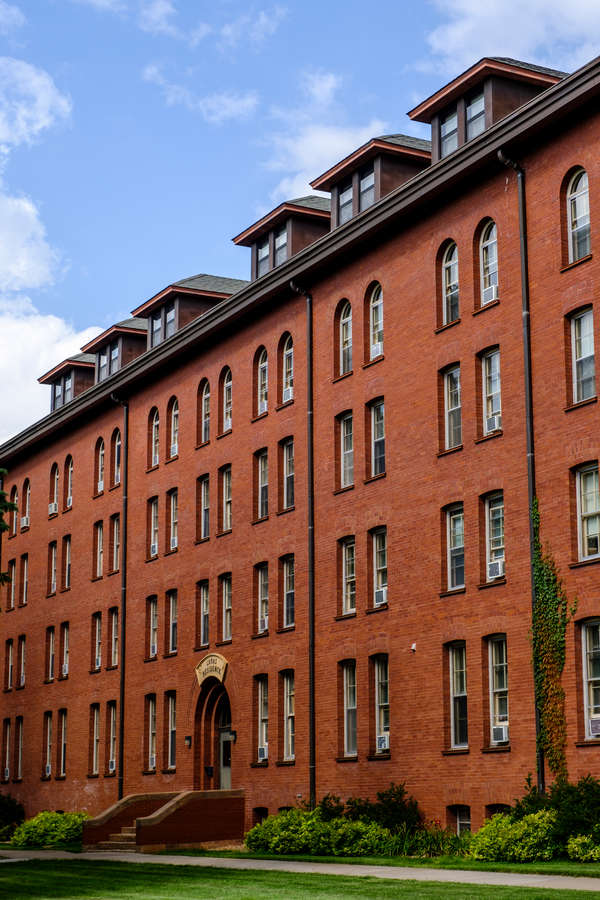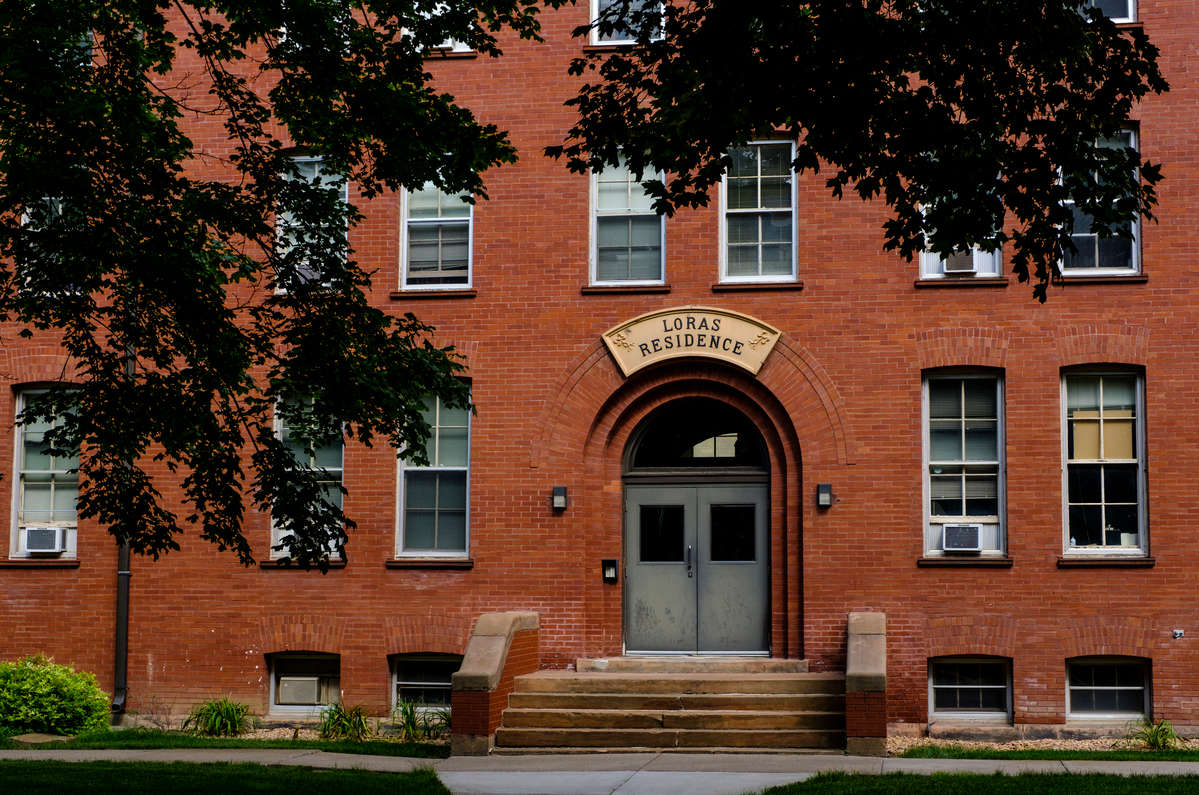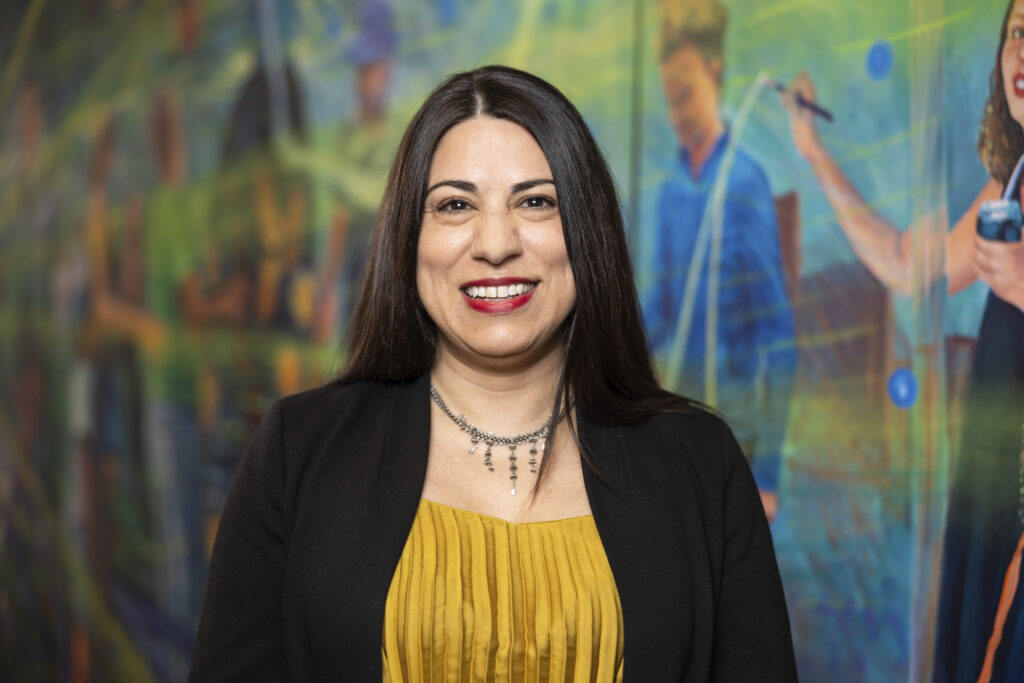In the next step of a deliberative process related to concerning information recently received about Bishop Mathias Loras, the namesake of Loras Hall, a panel answered questions and shared best practices on truth and reconciliation.
Associate Professor of History David Williard explained that, according to theologian Reinhold Niebuhr, there are only two choices for societies in either commemorating or revisiting commemoration: an authentic reflection of a community's value or an act of power. In his book Faith and History, Niebuhr explained that what usually happens is that power wins.
"In the 21st century, in a democratic nation and as a member of the University of St. Thomas as a community, we want to do things a little bit differently," Williard said. "We need to find some guiding principles – and other universities have given us a good template for how we might do this – that allow us to investigate the past with clear transparency about what our values in the present are. ... Doing this well sends a signal to not just those around us, but to our successors, about who we are and what this community values."
Williard explained that other institutions, such as Georgetown University and William & Mary – who have deep ties to the institution of slavery – are engaging in what he calls a "reciprocal and reflexive practice."
"In other words, they want to make their past speak to their present, and their present speak to their past in every aspect of what they do," Williard said. "Good practice is to say that this is not a debate about a name on a hall. It's not a conversation about one name on one hall, or even all the names on all the halls. It's really a conversation about how the university can and should serve its various constituents."
William & Mary, for instance, has tried to find and honor the names of every enslaved person who had anything to do with the building of that campus, and to make them visible at the entrance of the campus.
Willard said that this is a teaching moment, first by bringing students into the process, and second by helping St. Thomas get in touch with itself.
Who was Bishop Loras?

Loras Hall
Vice President for Mission Father Larry Snyder described Bishop Loras as a larger-than-life figure in the Archdiocese of Dubuque, comparable to the position that Archbishop John Ireland had in the archdiocese here.
Loras College is named after Bishop Loras. Ann Kenne, St. Thomas' archivist and keeper of its special collections and archives, said that Loras College will be retaining its name. However, the college created scholarships in the name of Marie Louise, the slave purchased by Bishop Loras while he was living in Mobile, Ala., and in honor of Loras College's first Black graduate and fifth Black priest to be ordained in the U.S., Father Norman DuKette. The college also removed a statue of Bishop Loras on its campus.
Loras Hall originally was constructed as one of three residence halls for The Saint Paul Seminary; it was named in 1913 in honor of Bishop Loras. The three residence halls, Loras, Cretin and Grace, were named for the three early ecclesiastical leaders of the area. Bishop Loras was the ecclesiastical leader until the Diocese of Saint Paul was created in 1850, when Bishop Cretin was named the first bishop of Saint Paul followed by Bishop Grace.
Through the lens of our Catholic identity
John Boyle, chair of the Department of Catholic Studies, offered a personal reflection on the understanding of the human person as an individual and in communion with others. He shared that the dignity of the human person is "grounded in being created in the image and likeness of God. It is true of every person. It is conferred by no human agency. It is inalienable. It comes from God and creation."
However, Boyle added, "It is an essential part of Roman Catholic thinking that the human heart is inclined to sin."
He said that, while communities honor good and noble human achievements because they value them, whomever we honor is a sinner.
"There is a necessity for deliberation and the weighing of those achievements of a given individual in relation to the sins and failures that mar the life of that individual," Boyle said. "What to value to the honoring person or honoring community at a given time and place can legitimately change over time."
Next steps
Distinguished University Chair and Founding Director of the Racial Justice Initiative Yohuru Williams, who facilitated the panel discussion, is co-chairing a committee with Pio Cardinal Laghi Distinguished Chair in Law and Co-director of the Terrence J. Murphy Institute for Catholic Thought, Law and Public Policy Gregory Sisk. The committee will include students, faculty, staff, alumni and trustees.
The committee will research best practices related to this issue and develop principles to guide St. Thomas' response to renaming recommendations. After those principles are created, St. Thomas will establish a process for putting those principles into use, including convening a group to specifically make a recommendation for Loras Hall.







